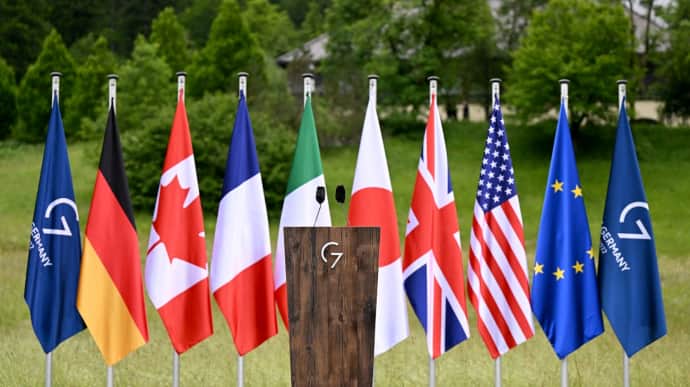The UK has joined Western allies in expressing support for Israel’s military strikes on Iranian nuclear and military facilities—escalating fears that the Middle East could be on the brink of full-scale war. As air raids continue, Prime Minister Sir Keir Starmer has deployed RAF fighter jets to the region, calling the move a necessary step to “defend British interests and support regional stability.”
Israel launched a barrage of missile strikes beginning Friday, targeting more than 150 strategic sites in Iran, including nuclear research centres and military command posts. The operation, described by Israeli Defence Forces as an effort to “neutralise an existential threat,” has been met with a fierce response from Tehran. Iranian rocket fire struck cities across central and northern Israel, killing civilians and injuring hundreds.
RAF on Alert: Starmer Signals Strong Support for Israel
In an emergency press briefing, Starmer stated, “Britain will stand by its allies. The deployment of the RAF is a defensive measure to safeguard our people, assets, and interests in the region.”
While stopping short of direct combat involvement, British intelligence officials have been placed on high alert. Sources within Whitehall confirmed that UK forces have reinforced military presence in Cyprus and Bahrain.
The Foreign Office has advised British nationals in the region to register with embassies and avoid non-essential travel.
Macron, Merz, and Allied Diplomacy Efforts
French President Emmanuel Macron reached out to Iranian President Massoud Pezeshkian to call for restraint and safeguard French citizens. Macron also urged Iran to return to the nuclear negotiating table, framing diplomacy as the only path to regional stability.
Germany’s Chancellor Friedrich Merz echoed support for Israel’s right to self-defence, while appealing to both nations to avoid further escalation. “Iran must not develop nuclear weapons, but de-escalation is in everyone’s interest,” Merz said in a statement.
Canada’s Foreign Minister Anita Anand added that diplomatic engagement is the “only viable route to lasting peace,” while condemning Iran’s attacks on Israeli civilians.
Trump Warns Tehran: ‘Deal Now or Face Worse’
U.S. President Donald Trump made headlines with his stark warning to Iranian leaders. In a post on Truth Social, he wrote:
“There has already been great death and destruction. But there is still time to make this slaughter— with the next already planned attacks being even more brutal— come to an end. Iran must make a deal before there is nothing left.”
Planned nuclear negotiations between Iran and the U.S. were cancelled Sunday morning, compounding fears that diplomatic pathways may be closing.
Casualties Mount as Missiles Fall
On the ground, the toll is devastating. Iranian retaliation included strikes on Tel Aviv and surrounding areas. In Bat Yam, an apartment block collapse killed six and injured 100. Two children aged eight and ten were among the dead.
The northern Israeli town of Tamra reported four fatalities, including a mother and her two daughters—all Palestinian citizens of Israel.
Meanwhile, Israeli airstrikes reportedly killed nine Iranian nuclear scientists and several high-ranking military officials and more than 10 Israel has also reported dead as result of Iran retaliatory
International Divides Emerge
Not all global powers support Israel’s actions. Russia’s Foreign Ministry condemned what it called “unprovoked military strikes” on a sovereign state. China joined in, with Foreign Ministry spokesperson Lin Jian calling for the protection of Iran’s “sovereignty and territorial integrity.”
Australia has taken a more cautious stance. Prime Minister Anthony Albanese confirmed that Australian military forces would not be involved. Foreign Minister Penny Wong advised Australians in the region to shelter in place.
Italy and other EU members are urging renewed negotiations, hoping to revive the faltering Iran nuclear deal framework.
UK Experts Warn of Fallout
Security analysts in London warn that escalation could draw the UK into deeper military engagement. “With RAF assets already in the air and the region on fire, Britain may have little choice but to prepare for wider involvement,” said Dr. James Bennett, a military expert
A senior former UK foreign minister, speaking on background, warned that the current Middle East crisis represents the “most dangerous moment” since the Iraq War and urged London to deploy every diplomatic tool available.
The Israel-Iran conflict is reshaping global alliances and placing the UK at a new strategic crossroads. With lives lost, negotiations halted, and nuclear fears rising, the stakes could not be higher. Western backing for Israel, led by the UK and the US, sets the tone for the coming days—where restraint, or the lack thereof, could determine the course of history.
New Daily Prime will continue its comprehensive coverage of the crisis with expert commentary, ground reports, and updates from our correspondents across the region.
Read Also: What you need know about Israel-Iran conflict as UN security council meets



